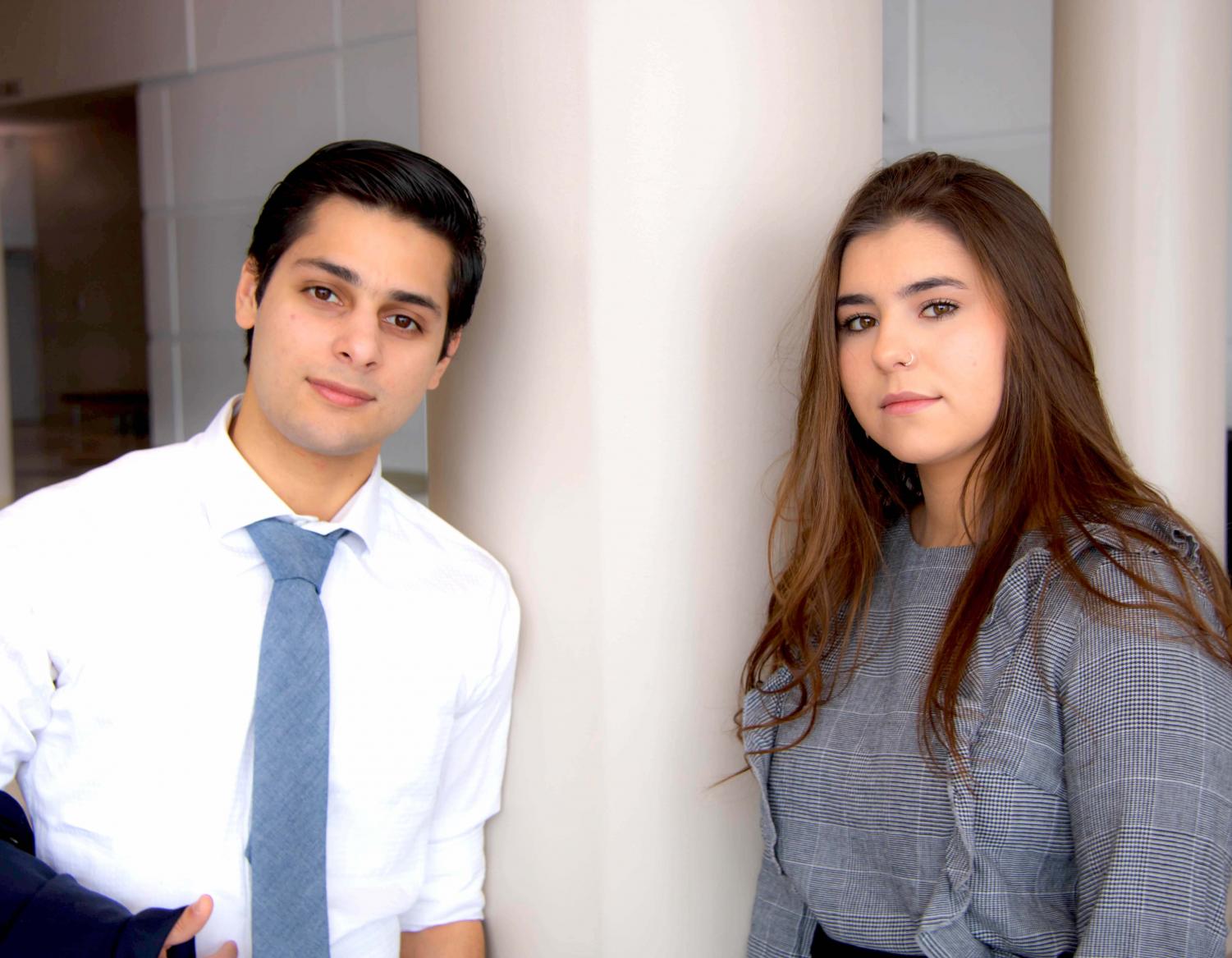Farhan and Micah announce NISG bid
Feb 25, 2019
When NISG campaign season started on Feb. 11, students found themselves with only one ticket option for president and vice-president: Jacob Levang and Jacob Stites. This changed on Sunday, Feb. 17 when Farhan Amjad and Micah McCutchan announced their candidacy for president and vice-president, respectively.
Even though he declared later, Amjad had been thinking about announcing a presidential run for a while. According to McCutchan, one major catalyst in choosing to launch their campaign was a letter that Director of Gender Violence Prevention Brenna Wolfe posted on Facebook denouncing Levang and Stites.
“People [were] saying they were unhappy that [Levang and Stites] was their only option,” said McCutchan, who is a junior double majoring in political science and public administration with a minor in international affairs. “Once [Farhan] decided that he did want to run, I was approached by people who were surrounding him already as his base team [. . .] They were discussing who would be a suitable running mate, and then I was approached by several people in that group. It took a couple asks for me to think about it, but that’s statistically pretty normal for women. It takes three asks for a woman to realize that maybe she is qualified to do something like that. So I was like, ‘You know what? I would be happy to present that option for students’.”
Why are they running?
“Representation and transparency,” said Amjad who is double majoring in computer science and digital media production. “There’s systematic discrimination that needs to be addressed and once we address it, we need to add in people who have a diverse opinion inside the government itself [. . .] Having just one kind of people representing just means that you have a stagnant opinion and no diversity, which kind of ruins the whole perspective of diversity and inclusion. So that’s what we’re trying to achieve here.”
As an international student from Pakistan, Amjad understands the need for UNI to increase their inclusion efforts on campus. He does not feel that the international students at UNI have a prominent enough voice. He recounts coming here 7,000 miles from Pakistan and experiencing culture shock and homesickness.
“It was really hard for me, because on one side you’re facing microaggressions, on the other side, you’re missing your parents, you’re homesick, and it’s just a cluster of events,” Amjad said.
“There are almost 600 international students at UNI. How many do we know? Ten? Twenty? Fifty? What about the rest of them—how do we incorporate those? That is just one identity that I’m representing. What about the other identities? People of color? Why aren’t we incorporated into society in such a way? That is where we come in.”
Even though Amjad is an NISG senator for the College of Humanities, Arts, and Sciences, McCutchan considers Amjad and herself to be “NISG outsiders.” Despite their outsider status, McCutchan thinks that one of their biggest strengths is how heavily involved in campus they are.
McCutchan is involved in groups such as the Nonprofit Leadership Alliance, Model UNI and MOVEment.
Amjad is part of the International Student Association, International Business Students and Student Admissions Ambassadors.
“We know that we don’t represent every identity on this campus,” McCutchan said. “We represent some, but there’s no way that we can speak for every single student on the issues that they face, and that’s why we want to reach out into the student body and have those voices be heard so that we can represent them effectively because we don’t know what every single student needs.”
Amjad also emphasizes the importance of diversifying their upper cabinet if they are elected.
“At the end, we’re a team that works for the betterment of UNI,” Amjad said.
Another key part of Amjad and McCutchan’s platform is increased transparency from the university administration and NISG to the student body.
“When I went and talked to the Director of Gender Violence Prevention [Brenna Wolf], she talked to me a lot about how there’s not a lot of transparency between the administration of the university and student government when student government takes issues to the administration and the administration says ‘no’,” McCutchan said.
“I think that we need to have more transparency there. If students demand something, and student government takes that demand to the administration and the administration says ‘no,’ that blame shouldn’t come back on student government. We should be holding the administration accountable. We should be holding them accountable for not doing what students need.”
Amjad and McCutchan have already made an effort to increase transparency.
According to McCutchan, some students approached her about a clause in their platform that addressed undocumented UNI students in an incorrect way.
Whereas the original clause calls for “safe spaces” for undocumented students, the update will call for “safe people” in an effort to increase the safety of such students, according to McCutchan.
Farhan and Micah for NISG informed their followers of this change in a Facebook post on Feb 22.
According to McCutchan, she and Amjad want to keep hearing from students about how they can change their platform for the betterment of the student body.
One way they would like to hear from students is at the upcoming debate against Levang and Stites on Monday, Feb. 25 at 5 p.m. in Maucker Union Coffeehouse.
“We’re representatives and we need to be held accountable,” Amjad said.
“So when we say that everyone should come to the debate, it’s so everyone can see these perspectives and they can ask us the hard questions because at the end if we cannot represent and answer the students’ questions, we are not fit. So everyone should come. Everyone should make it hard for us. Ask us the hard questions—the questions no one wants to ask. We can grow and make our platform and the university better.”











